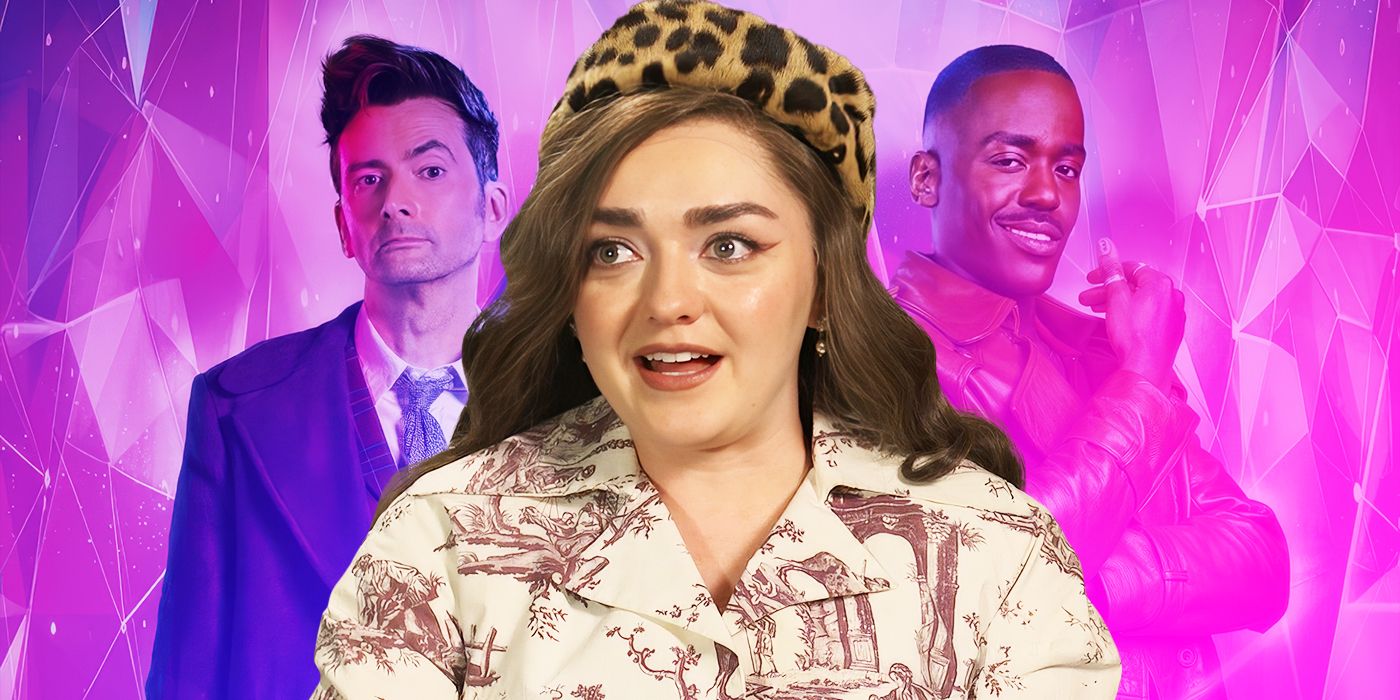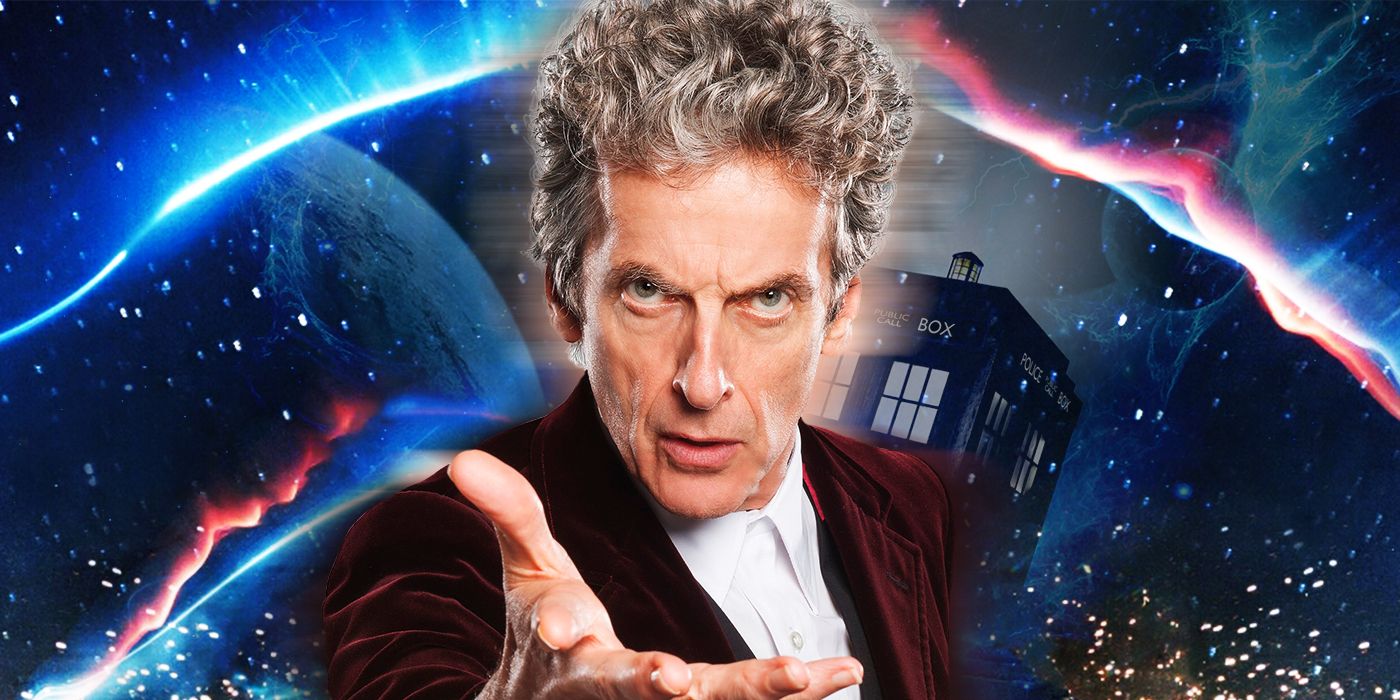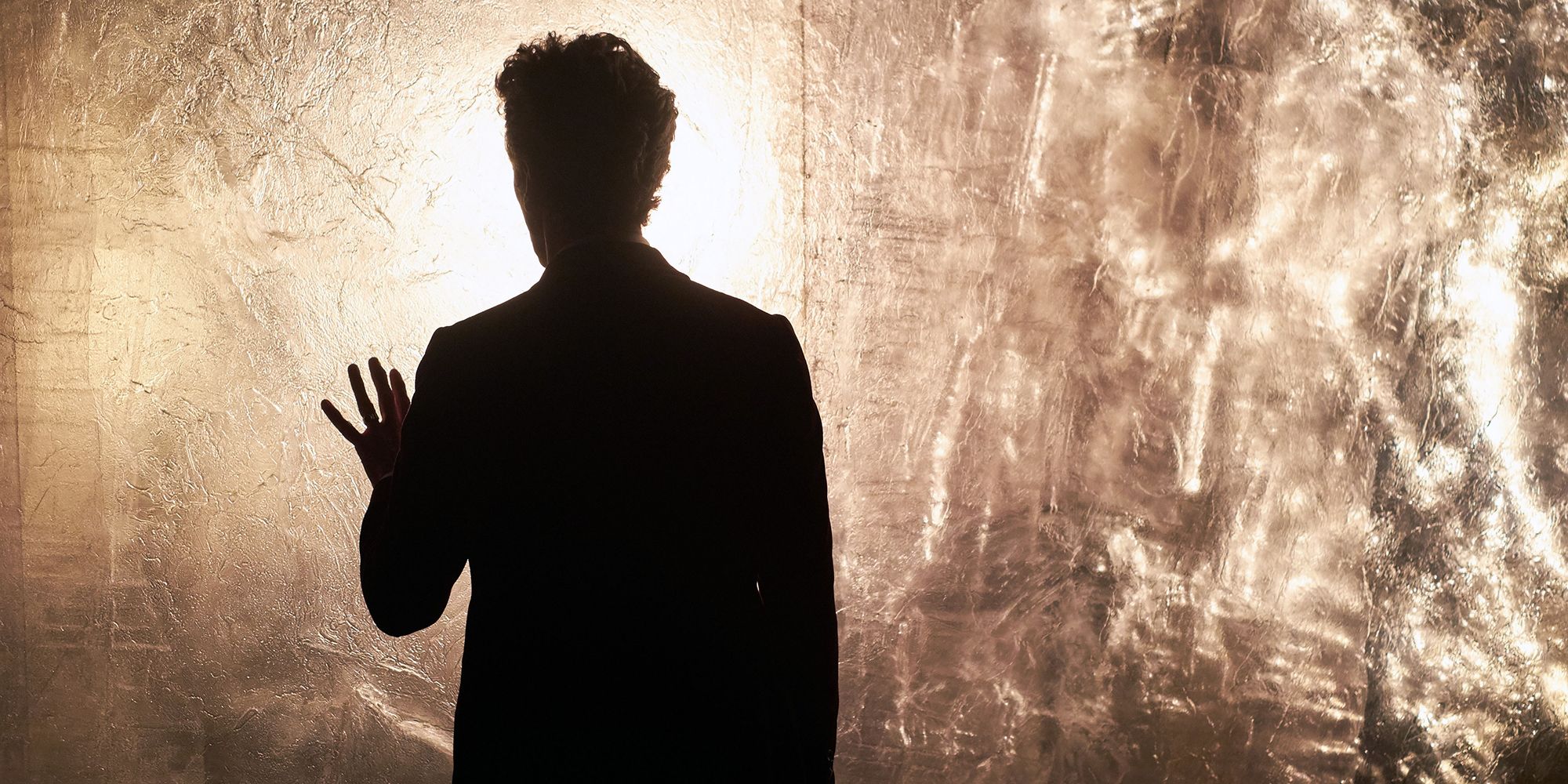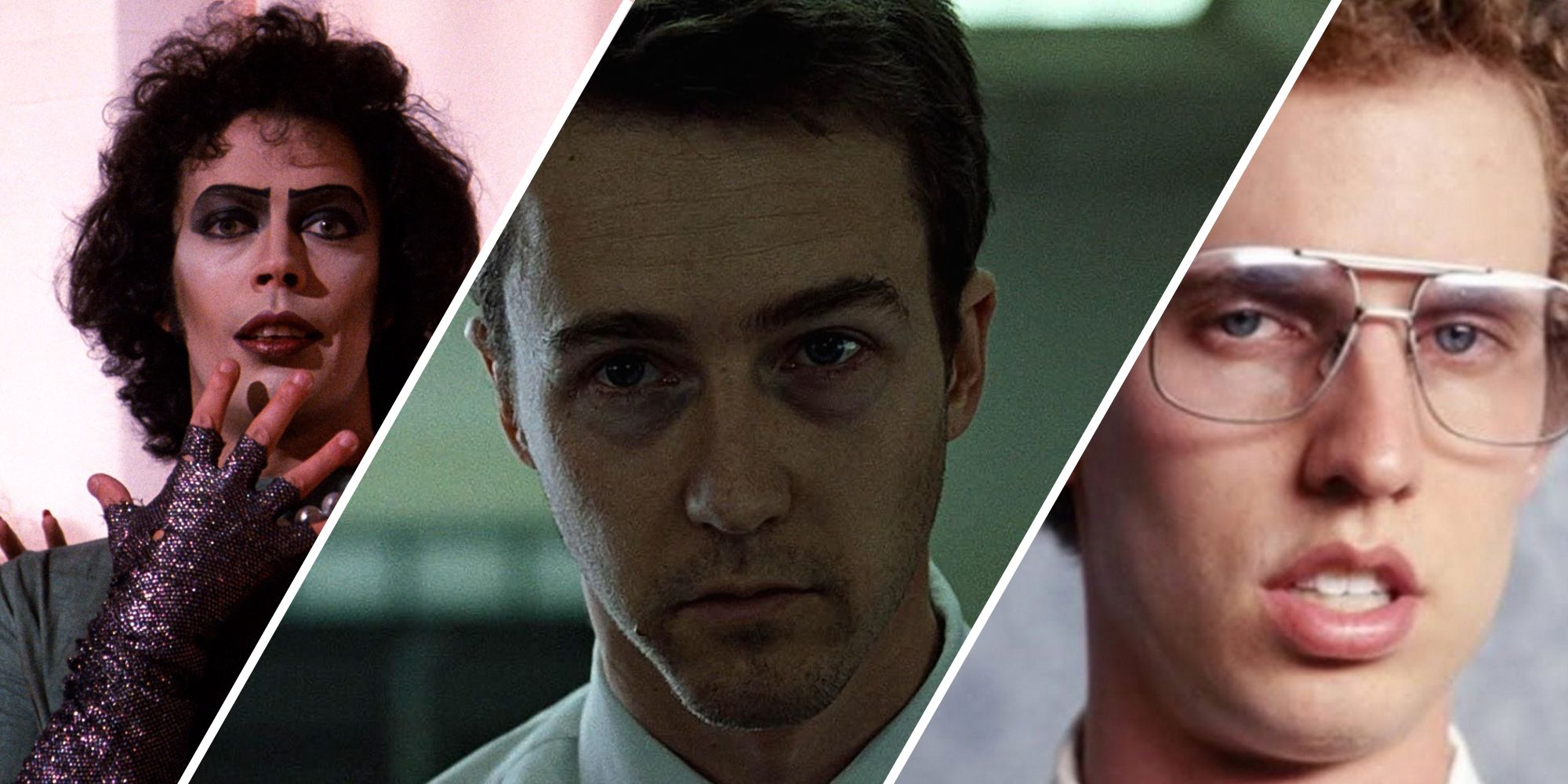The Big Picture
- “Heaven Sent” breaks the traditional
Doctor Who
formula, offering an intimate and claustrophobic episode. - Peter Capaldi’s performance in the episode is raw and emotionally impactful, showcasing the Doctor’s unique journey.
- The episode explores grief and overcoming loss with inspiration and determination, delivering a powerful message.
By the very formula of the show itself, Doctor Who is not a place where you would expect serious drama and exploration of deeply human themes, given that it was originally created in the 1960s as an educational show for children. Even for a show with many great seasons since its revival, the rotating door of actors who occupy the titular role also guarantees a fierce divide over who plays the role best, as all of them approach the character very differently.
By the time of his second season, Peter Capaldi had already proven the contrast between himself and the more jovial Matt Smith before him, but it was not until the end of the season that he truly got to shine. Unlike nearly every episode prior, “Heaven Sent” feels extremely unique for its contained nature, but at the cost of forcing Capaldi to essentially carry the episode on his shoulders with almost no outside help in a series where new actors can already face major pressure. Luckily, he is more than up to the task and delivers a performance both inspirational and terrifying, even if the implications are not explored in full until the finale. Serving a simple but surprisingly powerful message about how to overcome grief and loss, “Heaven Sent” provides an unconventional experience in an otherwise formulaic and serialized television series.
Doctor Who
The show follows the adventures of a Time Lord “The Doctor” who is able to regenerate, and the Doctor’s human friends. The Doctor and companion’s journey through time and space in the TARDIS – a time-traveling ship shaped like a police box – saving the universe with a combination of wit, bravery, and kindness.
- Seasons
- 14
- Studio
- BBC America
“Heaven Sent” Is an Unconventional Episode for ‘Doctor Who’
While there are some recurring antagonists throughout its six decades, Doctor Who has largely been defined since the beginning by its traditional and classic method of having adventures with a single villain to overcome each week, something which has often worked quite well for them. “Heaven Sent,” however, displays an unexpected willingness to break that very trend. Following the betrayal of Ashildir (Maisie Williams) and the death of Clara Oswald (Jenna Coleman) as an unalterably fixed point in time, the Twelfth Doctor (Peter Capaldi) has already been presented with what most would view as the impossible task of breaking free from his chronological prison. Within this prison, his sole company, if one could even call it that, is a mysterious creature identified only as the Veil (Jami Reid-Quarrell) in the main credits and never by name onscreen. Although Clara is definitely not the first companion to meet a tragic fate, the Doctor has never been so determined to reverse it, no matter the cost to himself and others. For one of the few times in his life, he is left entirely alone, creating an unprecedented challenge.
“Heaven Sent” follows the typical subplot of having an individual villain with a single appearance, but there is no obvious weakness there. On the contrary, the Doctor has to allow himself to be killed by the Veil in the short term many times over to achieve victory in the long term, and the journey to uncovering this is just as unique, presenting no immediate solution. While other episodes create a singular obstacle grand in scale, the mundane nature of the problem and lack of stakes on anything except an individual level ensure both a more claustrophobic atmosphere for the story and leave it feeling more intimate than most other episodes.
“Heaven Sent” is far from the scariest episode in the history of the show, but the genius lies in its relative simplicity when compared to other installments. This one little subplot that might even appear unimportant at first glance actually turns the formulaic nature of Doctor Who on its head by exploiting that straightforward style for maximum dramatic effect. Few episodes before or since have tried to do the same, but that might be a hidden benefit since it also comes at the perfect moment for the character of the Twelfth Doctor.
Peter Capaldi Commands the Screen in This ‘Doctor Who’ Episode
Over the years, we’ve seen many incarnations of the Doctor come and go, but few have possessed an arc as unique and fascinating as Twelve did. From his inaugural episode, we see a man who struggles to care for others — much to the distress of Clara — but by the time we reach the end of his second season, he instead has begun to care too much, which is the exact reason why he becomes imprisoned in the first place. The unbreakable determination that Capaldi displays in his loyalty to Clara never makes us question whether his actions to save her are justified, something that is explored more thoroughly during the season finale. Only at the end of his life, in the following season, does he learn how to care enough for others and himself to pursue impossible odds for a noble cause, while also trying to keep living despite the inevitable pain and loss he will face in the future. This makes the underrated nature of Capaldi’s performance even more tragic to consider, since the show has had many big names and created more of its own in recent decades.
“Heaven Sent” is also notable because it serves as an extremely rare case where the Doctor feels tempted to succumb to despair, especially after learning of the unbreakable wall he must destroy with his bare fists to break through. For such an optimistic being as himself and particularly given the cold nature of this incarnation, it can be quite harrowing and even shocking to witness, making it all the more satisfying when she convinces him to keep going. Plenty of companions have made an impact over the years, sometimes in a single episode, but the chemistry here between Capaldi and Coleman feels unlike anything we’ve ever seen before, as we see the Doctor helpless for the first time in his life and how the companions serve to anchor his psyche and humanity. The sheer raw emotion presented here is enough to convince the audience that his subsequent determination and optimism are genuine, and, Coleman’s hope for an eventual return of Clara notwithstanding, it also remains emotional for the audience because it’s one of the last scenes they have together.
0:33

Maisie Williams Would Love to Return to ‘Doctor Who’
Williams wants to see Ashildr team up with Ncuti Gatwa’s Doctor.
‘Doctor Who’s “Heaven Sent” Episode Masterfully Explores Grief
While it might not be the most emotional episode since the series was first revived nearly twenty years ago, “Heaven Sent” nonetheless has a lot to tell us about the nature of grief and our efforts to push through it with sheer determination. The wall itself serves as an almost literal example of the catharsis that the Doctor is denied, as well as the mental barriers we create for ourselves. When he first discovers the wall itself, the Twelfth Doctor goes through the classic five stages of grief in the space of just a few minutes. From denying the scale of the task itself, he rages at the task at hand and begs for his recent misfortune to be over before collapsing into despair. It is only the encouragement of Clara that leads him to accept his condition and continue the process to its inevitable conclusion. In a subversion of the five stages, however, he accepts his own demise, but only because it allows him to rescue Clara, whom he cannot bear to lose after similar fates have befallen so many companions. Given what follows, it can easily be interpreted that the message Clara gives him — to “get over it” — serves as both an inspiration but also as a warning against becoming too attached to things that must pass naturally, something that the show itself has since appeared to have forgotten.
Regardless of the foreshadowing of darker events that will follow, the breaking of the wall itself over billions of years feels very inspirational, no doubt helped along in the episode by “The Shepherd’s Boy” theme from composer Murray Gold. Like everything the Doctor does throughout his adventures, the supposedly simple task of recovering from grief can often feel impossible, and the time spent there can last for what feels like an eternity, even for someone who has lived so many lives. With its super quick editing, the montage itself shows us how simple willpower and determination can break down even the strongest of barriers, a lesson that can be applied not only to loss but to many facets of life. Then, just when it seems like the wall can never break and one more punch will not make any difference, it does, and you’re finally free to enter the world again.
Ultimately, “Heaven Sent” is memorable for its simplicity, one which secretly includes multitudes. The arc still fits the classic Doctor Who formula that it has never fully abandoned since it began as a black-and-white serial in the early 1960s, but now from a new perspective. Capaldi’s performance explores new sides of the Doctor we’ve rarely seen, but one that also proves layered and intriguing with repeated viewings. The entire message of the episode, while delivered bluntly and open to darker interpretations, is still unique and inspirational for a show that rarely explores such emotional topics. Although the series has rarely done bottled episodes before or since, this one proves that it can be done and even done with incredible success.
Doctor Who is available to stream on Max in the U.S.
Watch on Max





